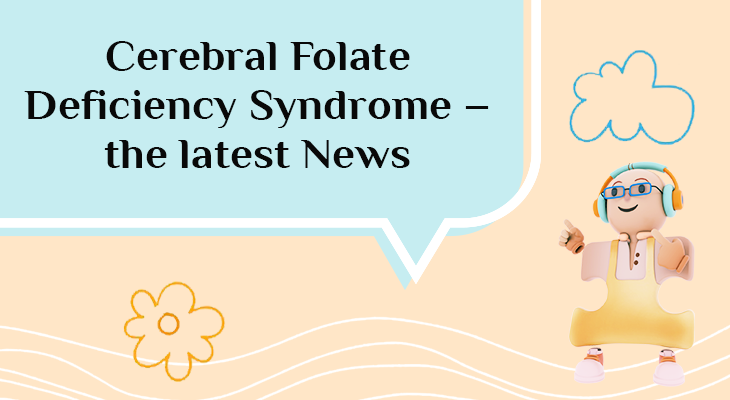
Cerebral folate deficiency (CFDS) syndrome is a neurological disorder characterized by low levels of 5-methyltetrahydrofolate (5-MTHF), which is a reduced folate (Vitamin B9) in the cerebrospinal fluid despite normal levels of folate in the blood.
Folate, also referred to as vitamin B9, is a most critical nutrient that is essential for proper brain development and function. The physiological function of its most reduced form (methyl tetrahydrofolate) is necessary for many functions including the de novo synthesis of purines and thymidine, methylation of DNA, the conversion of homocysteine to methionine, and the formation of the active methyl-group donor S-adenosylmethionine (SAM), which is used for the transfer of methyl-groups. SAM is used in more than 100 chemical reactions among which are the methylation of DNA, fatty acids, phospholipids, polysaccharides, and proteins.
Adequate folate is not only necessary for DNA synthesis and replication, cell division, growth, and survival, but also for normal embryonic growth, as well as development and maturation of the nervous system.
Functional transport mechanisms across the intestinal, placental, and blood-brain barriers are crucial to achieve adequate folate within organs and especially into the CNS. For passage across the blood–CSF barrier, plasma 5MTHF is bound to the Folate Receptor Alpha. The choroid plexus is the main site of active folate transport to the CNS, as the Folate Receptor Alpha possesses a high affinity for folate. Folate transport by Folate Receptor Alpha across the choroid plexus is an active energy dependent transport, leading to a two-fold higher concentration.
However, when folate transport is impeded into the Brain and the CSF, a condition of cerebral folate deficiency arises. In other words, not enough vitamin B9 is able to get in the cerebrospinal fluid, causing certain neurological issues.
The symptoms of CFD syndrome can vary but often include:
- Developmental regression or delays
- Movement disorders, such as ataxia or spasticity
- Seizures
- Visual and hearing impairments
- Sleep disturbances
- Speech difficulties
- Behavioral problems, including autism spectrum disorder-like symptoms
As mentioned in the above, the main manifestation of CFDS is deficiency in cerebral folate.
There are, however, several reasons that CFDS may occur.
CFDS can be caused by factors such as:
- Genetic mutations in the FOLR1 gene, which encodes the folate receptor alpha protein. A defective FOLR1 gene will not allow folate to properly bind to the receptor.
- Metabolic disorders affecting folate metabolism. In essence, such metabolic disorders prevent proper folate storage and transport. This depletion can be caused by inadequate dietary intake of folate, impaired absorption of folate from the diet, or underlying medical conditions that interfere with folate metabolism. Because of decreased folate storage, the body may not have enough folate to support essential cellular processes.
- The presence of Folate Receptor Autoantibodies. In many cases of CFDS, folate receptor autoantibodies may be the main cause. Folate Receptor alpha is the primary folate receptor at the choroid plexus that transports folate in the CSF. It has been found that a large number of cases of CFDS involve the presence of folate receptor autoantibodies (blocking and binding types). In this autoimmune condition, folate receptors autoantibodies make the folate receptor alpha dysfunctional, thereby preventing the transport of folate.
The diagnosis of Cerebral Folate Deficiency Syndrome is made by a medical professional and typically involves:
- Clinical evaluation of symptoms
- Blood tests to check for folate levels, folate receptor autoantibodies (FRAT® test), and genetic testing.
- Sometimes the measuring of 5-MTHF levels in the cerebrospinal fluid through lumbar puncture, although this is a very invasive procedure.
Early diagnosis and treatment are crucial to managing symptoms and improving outcomes for individuals with CFD syndrome.
Treatment for Cerebral Folate Deficiency Syndrome typically involves the administration of folinic acid, which is a reduced folate that can cross the blood-brain barrier. In many cases, this treatment has shown to be very beneficial. Additionally, the avoidance of antifolate drugs is recommended.
Management of symptoms may also be supported through physical, occupational, and speech therapies.



